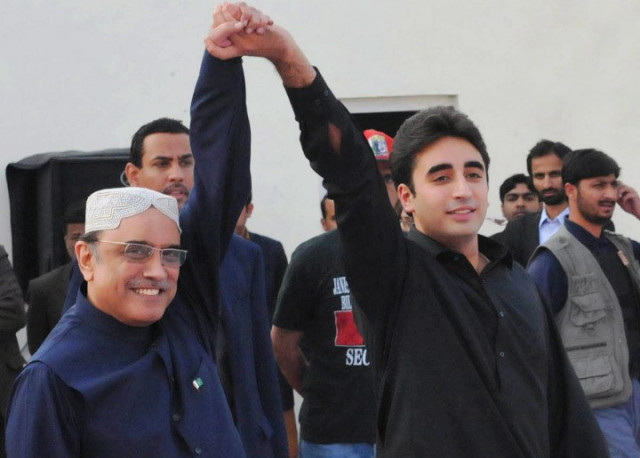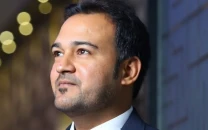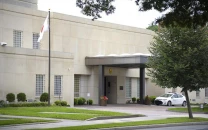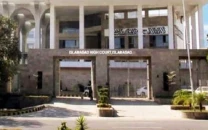Analysis: Welcome to Project Bilawal
In so many ways, 25-year-old Bilawal is a reflection of the party that he has inherited

Asif Ali Zardari and Bilawal Bhutto. PHOTO: PID/FILE
Bilawal Bhutto Zardari caught many off guard with his speech on Friday. For the first time, it was for what he said, not only how he said it.
Though he was officially ‘launched’ last year, the young chairman of the Pakistan Peoples Party only entered the political realm on Friday with a speech in which he directly took on his party’s political competition for the first time. The fiery speech was preceded by a high-level meeting in Naudero that Bilawal chaired and was followed by a flurry of activities, ground visits and photo-ops that continued on Saturday.
The push to rebuild the PPP is 48 hours old: Welcome to Project Bilawal.
In so many ways, 25-year-old Bilawal is a reflection of the party that he has inherited. Both are in a transitional phase, which can be very long and awkward affairs requiring a lot of patience, investment and getting used to. Bilawal has been a work in progress – despite his title, despite expectations, and despite many feeling that he has been around for a while (after all, his political career is still technically a few months old.) It is too early to judge him, and certainly too early to write him off – as many had already done.

Based on the timeframe, Bilawal is progressing well – which can be gauged by comparing the PPP chairman’s last two speeches 10 months apart. The one before Friday’s came at Garhi Khuda Bux in 2012, on the anniversary of Benazir Bhutto’s assassination. There is a marked difference in both his spoken and body language in the two speeches: He seemed more at ease and confident on Friday. And that’s key.
It has not been an easy journey for him. The learning curve has been steep – and will get steeper still. Since being thrust into the spotlight as a teenager after his mother’s assassination, Bilawal has been a figure of ridicule for many – ridicule that has almost exclusively been directed at his accent and mispronunciations, his privileged upbringing and lifestyle, or his age. To be fair, none of this has any bearing on his potential – or lack thereof – to be a good leader.
This is disingenuous criticism. Even Imran Khan – who many cite as a prime example of a good public orator in mainstream Pakistani politics – had his struggles with language and accent at the outset, and sometimes still does. So did Benazir. And so did Jinnah, for that matter. As for his privileged background, one would struggle to find a political leader in modern day Pakistan who grew up facing adversity or one who has not or will not inherit a political legacy. It’s not like Nawaz Sharif or Imran Khan worked two jobs when they entered politics.
In any case, this criticism ought to be the least of Bilawal’s concerns. He has announced himself at a difficult time for the PPP, which finds itself at a low point; the lowest perhaps since the beating it took in the 1997 elections – moving from having 89 seats following the 1993 elections to winning a lowly 18. They may have won Sindh following the 2013 general elections, but that was more because of a lack of a plausible alternative and political competition in the province. And even in this case, the PPP, once the largest party of the country, has been reduced to yet another one-province act. While the party still holds the second-most seats in the country, they are far behind their principal competition, and just in front of third place.
On the ground, the PPP was a no-show in the 2013 elections, and continues to be a no-show today – reflected in a number of political developments, most recent of which was the selection of the chairman of the National Accountability Bureau. And if murmurs are to be believed, even the party’s occupation of the opposition leader post in parliament is in jeopardy.
These are testing times for the PPP, and this gamble was necessary. For better or for worse, Project Bilawal is the face of the revival act – which he himself has termed “PPP 2018.” Judging by the progress on display over last two days, we may just be in for a big surprise. As Bilawal rolls up his sleeves, literally and figuratively, political opponents are sharpening their knives. The PPP has made its move. One way or another, this will be a fight to the end – both for Bilawal and for the PPP.
Published in The Express Tribune, October 20th, 2013.



















COMMENTS
Comments are moderated and generally will be posted if they are on-topic and not abusive.
For more information, please see our Comments FAQ